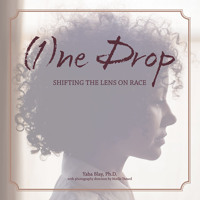There’s a long story behind ‘anti-Haitianismo’ in the Dominican RepublicPosted in Anthropology, Articles, Audio, Caribbean/Latin America, Census/Demographics, Law, Media Archive, Social Science on 2013-11-15 02:54Z by Steven |
There’s a long story behind ‘anti-Haitianismo’ in the Dominican Republic
PRI’s The World
Public Radio International
2013-11-14
Christopher Woolf, Producer
Tens of thousands of people in the Dominican Republic are being stripped of their citizenship, on the grounds that they or their ancestors were illegal immigrants. Thousands have already been deported across the border to Haiti, because it is assumed all illegal migrants come from there.
The court ruling applies to anyone whose family arrived in the country after 1929 and can’t document their status. Being born in the Dominican Republic doesn’t make a difference.
Some are calling it the latest manifestation of “anti-Haitianismo” in the Dominican Republic. Both countries are on the same island of Hispaniola.
Their relations are a story of race, identity, and money. The Dominican Republic is not a rich country, but it’s a lot better off than its neighbor, Haiti.
In terms of per capita GDP, it’s about six times richer. So thousands of Haitians go to the Dominican Republic to find work. Haitians and their descendants may make up as many as one in ten of the Dominican Republic’s population. Some Dominicans are unhappy about that, as they see Haitians as different, and some fear for the identity of their nation.
Haitians are different from their Dominican neighbors in several ways. Firstly, language: most Dominicans speak Spanish, while most Haitians speak Creole, based on French. Then, there’s the issue of race.
Haiti is overwhelmingly black; whereas Dominicans identify more with the European part of their heritage, rather than the African part. Most Americans would describe most Dominicans as black. And DNA tests taken over the last decade confirm that most Dominicans have black ancestry in their family history to varying degrees.
But race in the Dominican Republic and in other parts of the Caribbean does not mean the same thing as it does in the United States. Dominicans use a variety of words to self-identify, such as moreno, trigueno, and blanco-oscuro, indicating different colors or different types of mixed racial origins. But not many will choose the term “black.”…
Read the entire article and listen to the story here.


